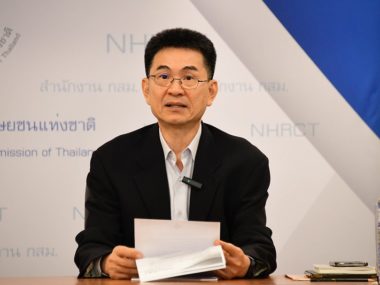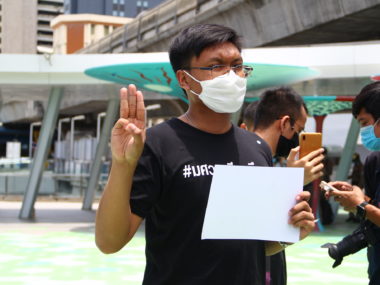The three types of Courts-Martial are still enforcing on cases against military personnel including Chelsea Manning and widely debated Bergdahl. While after 9-11, the US Congress authorized military commission to try, without due process, suspects of terrorism including the cases occurred before the law.

picture from jeff_golden
The core of the contemporary military justice of the United States is the Uniform Code of Military Justice (UCMJ). The statute is like a criminal code for the member of the US Armed Forced. It lists crimes punishable under the civilian criminal law such as rape, murder etc. and also criminalizes acts unique to the military members, such as desertion, disrespect toward superior commission officers etc., to ensure good order and discipline of the servicemen.
The subjects of the UCMJ are the active members of the armed forces, members of the reserve component, on or off duty, cadets, aviation cadets, midshipmen, and the members of the Fleet Reserve and Fleet Marine Corps Reserve. Moreover, the members retired from the components but still receive hospitalization from the armed forces and other organizations that serve the armed forces are subjected to the UCMJ as well. The UCMJ is applicable to its subjects in all places both inside and outside of the United States territory (worldwide jurisdiction).
Courts-martial are a widely-debated political topic on sepcific cases.
Subjects who fail to comply with the UCMJ are to be tried in courts-martial. The Manual for Courts-Martial is the rules indicating the procedure of all the courts-martial. Military Courts are not permanent forums and they are convened on the basis of necessity. The Congress authorizes Convening Authority (commanders or officials) who will has the power to issue order that establish a specific type of courts-martial depending on the charges against the accused.
There are 3 types of first instance courts-martial: summary court-martial, special court-martial, and general court-martial. The summary court-martial tries non-capital offenses. The court is composed of one judge advocate. Only civilian lawyers are permitted to represent the accused. The punishments summary court-martial can order are confinement for 1 month, forfeiting ⅔ of the salary for 1 month, and reduction to lowest pay grade. The summary court needs consent from the accused to precede the trial.
The special court-martial consists of at least 3 members (jury) or one military judge and at least 3 members, or the accused can make an oral or written request for only one military judge and the judge approves. The special court can adjudge no more than 12-month confinement, no more than 12-month forfeiture, bad conduct discharge or reduction to lowest pay grade.
The general court-martial is the most serious of the all the first instance military court. Before any charges can be referred to the general court, investigation and preliminary hearing must be carried out. The court constitutes of one military judge and at least 5 members. The lawyer representing the accused can either be military lawyer or civilian. The general court can adjudge any punishment permitted by the UCMJ including death penalty.

Table from innocentworrior.org
Examples of famous cases in US courts-martial are the cases of Bowe Bergdahl and Chelsea Manning.
Sergeant Bowe Bergdahl is charged with desertion and misbehavior before the enemy and the trial will be conducted in general court-martial. The reputation of the case comes from the fact that Bergdahl intentionally left his base in Afghanistan in June 2009 and fell into Taliban’s hand until he was released 5 years later because the Obama administration agreed to swap 5 Taliban prisoners in exchange for Bergdahl’s freedom. His trial is going to begin on May 15, 2017. The controversy of the case lies in the prisoners swapping deal and the politicization of the matter in 2016 Presidential election.
Another example is the case of Chelsea Manning who leaked over 700,000 classified US documents to WikiLeaks. One of the leaked documents is a video that shows dehumanizing behavior of the US helicopter crews laughing as they launched air strikes in Baghdad resulting in many casualties in July 2007. Other documents suggest inappropriate action of the US military such as the killing of unarmed civilians in Afghanistan and US authority failure to investigate hundreds of reports on abuse, torture, rape and murder.
In 2013, Manning was convicted of violations of Espionage Act, copying and disseminating classified documents. She was sentenced to 35 years in prison. There have been debates about the ruling of the case. Civil Society Such as Amnesty International opposed the ruling and called for the release of Manning and demanded the American authority to instead investigate the human rights violation reveal in the leaked documents. Manning’s sentence was finally commuted in the last days of Obama presidency and she will be released in May 2017.
It is noteworthy that the military court in the US is not controversial per se. The issues surrounded the particular cases in military court are instead the source of debate. The controversial military tribunal however is the military commission set up to try the ‘terrorist suspects’ after the September 11 attack. The concerns are the limited due process and the ability of the commissions to effectively carry out the trials.

Picture from USDAgov
Military Commission set up to tried ‘enemies’ after 9-11
In the United States, the term military commission appeared in written document during the Civil War (1861 – 1865). Military commission emerged to cope with large occupied hostile area and the inadequate provision of the Article of War at the time. Military commission was originally design to effectively prosecute unlawful combatants and during the Civil War, over 2,000 commissions were convened. Also, military commissions were heavily used during World War II but hardly ever convened until the September 11 incident.
After 9-11 attack, Congress passed the Authorization for the Use of Military Force (AUMF) in response to the attack. The AUMF granted the President to use ‘all necessary and appropriate force against those nations, organizations, or persons’ that provide resources and safe haven for the terrorists who committed the attack on September 11, 2001. With this authorization, the US declared war on both state and non-state actors in effort to eradicate terrorism.
Military commission is a legal action taken in an effort to curtail terrorism. Under the AUMF, the President signed order having trials for enemy suspects conducted in the military commission. The commission significantly limited the access to due process and evidences from coercion and torture were admissible. The military commission by Bush order was short-lived as the Supreme Court ruled in 2006 that the commission set up by Bush administration was not valid without Congress approval and the order violated UCMJ and Geneva Conventions (see Hamdan v. Rumsfeld).
After the Bush order was struck down, Congress passed the revised Military Commission Act of 2006 in response to the Supreme Court decision. On February 14, 2007, Executive Order 13425 established the tribunal. Secretary of Defense is the Convening Authority of military commission. In 2009, President Obama took office and temporarily suspended the commissions during his first week in office. He attempted to transfer the remaining Guantanamo prisoners to federal court but he eventually dropped his plan and revived the tribunals in the same year. Military Commission Act of 2009 amending the 2006 one by expanding the due process of the accused to include habeas corpus.
Manual for Military Commission governs the procedures of the tribunal. The composition of the Military Commission consists of one military judge and at least five members (jury). Death penalty case however requires at least 12 members on the forum. Any active members in the Armed Forces are eligible to be the member of the court. Persons triable in the court are alien unprivileged enemy belligerents, individuals who engage in or support the hostility against the United States or its coalition; or is a member of the Al Qaeda. The punishable offenses include but not limited to murders, attacking civilians, taking hostage, conspiracy, using poison weapons and others specified in the law of war.
Even though the revised version of the Military Commission Act prohibits admission of evidence obtained from coercion and torture, the lack of due process still exists. One of the extraordinary points in the Military Commission Act is its retroactive power. A military commission has jurisdiction to try any punishable offenses written in MCA committed before, on, or after the September 11 attack. Typically, the United States Constitution prohibits any ex post facto law; constitutionality of the MCA in this point is contestable.
Military commissions are also able to determine their own jurisdiction. Another interesting point about military commissions is the eligibility of the defense attorney. The accused can only hired an attorney with US citizenship and who is a member of a bar in the United States. Attorney-client privilege is not mentioned. Pre-trial hearing is not applicable in the military commission. Hearsay evidence is also admissible with adequate notice and if the judge sees the statement reliable.
Since Guantanamo prison opened in 2002, there has been 779 men and boys detained there. As of September 2016, only 30 prisoners have been charged, only 8 of which have been convicted. 7 cases out of 30 charged are ongoing.


